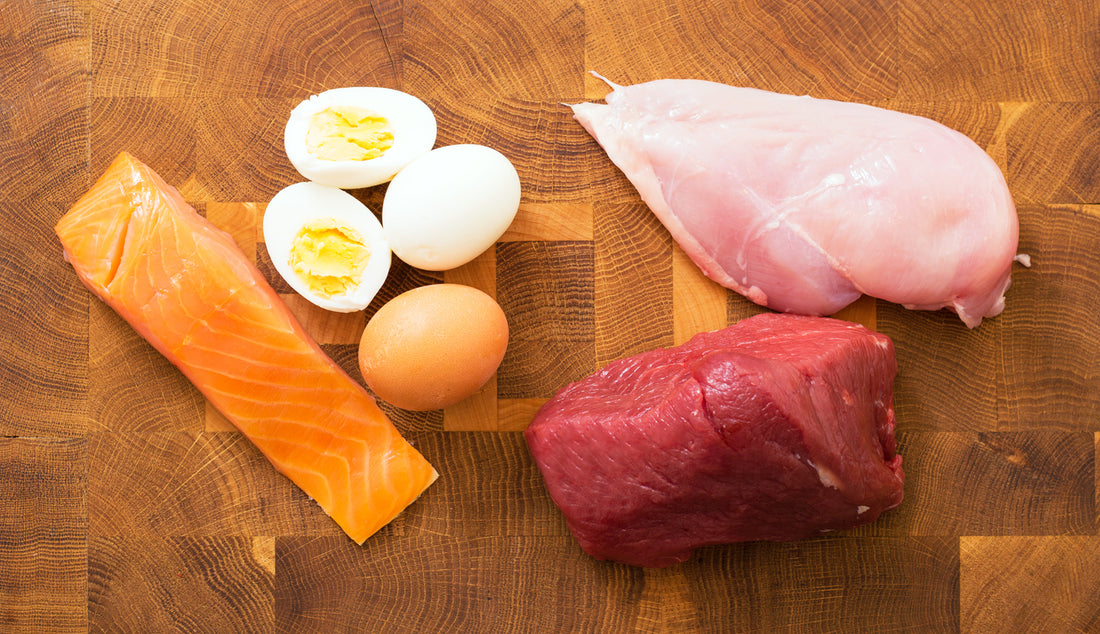
Nutrient Density Unleashed: Exploring the Best Animal Sources
Nutrition is the cornerstone of our health, and understanding the concept of nutrient density is vital in making informed dietary choices. Nutrient-dense foods are those that offer a high concentration of essential nutrients relative to their calorie content. In this blog, we'll delve into the world of nutrient density, focusing on animal sources that provide a wealth of essential nutrients while supporting your overall health.
The Power of Nutrient Density
Nutrient-dense foods are like nutritional powerhouses, offering a wide array of vitamins, minerals, and other essential nutrients without an excessive number of calories. They are the foundation of a balanced diet and provide the following benefits:
Optimal Nutrition
Nutrient-dense foods supply your body with the vitamins, minerals, and nutrients it needs for proper growth, maintenance, and overall well-being.
Weight Management
These foods help you feel satisfied and full, reducing the risk of overeating and supporting weight management goals.
Energy Levels
Nutrient-dense foods provide a steady source of energy, preventing energy spikes and crashes associated with high-sugar, low-nutrient options.
Disease Prevention
Consuming nutrient-dense foods is linked to a lower risk of chronic diseases, such as heart disease, diabetes, and osteoporosis.
Enhanced Cognitive Function
Proper nutrition is crucial for brain health, affecting memory, focus, and mood regulation.
The Best Animal Sources for Nutrient Density
Beef
Grass-fed beef is a nutrient powerhouse!! Rich in protein, iron, zinc, vitamin B12, Conjugated Linoleic Acid, Creatine, Carnitine and Carnosine. Beef provides essential nutrients in their natural and bioavailable forms
Eggs
Eggs are nature's multivitamin, packed with essential nutrients. They're an excellent source of protein, vitamin B12, choline, and several important minerals. Eggs also contain lutein and zeaxanthin, which are beneficial for eye health.
Salmon
Salmon is a superstar in the world of nutrient density. It's rich in omega-3 fatty acids, which support heart health, brain function, and reduce inflammation. Salmon is also an excellent source of high-quality protein, vitamin D, and B vitamins.
Poultry
Poultry such as Chicken and Turkey provide high-quality protein with relatively low calories and fat. They are also good sources of B vitamins, particularly niacin and vitamin B6.
Yogurt
Yogurt is a dairy powerhouse, offering protein, calcium, probiotics, and vitamins like B12 and riboflavin. Opt for plain, low-fat or non-fat varieties to keep calorie content in check and the protein levels super high.
Canned Sardines
Sardines are an often overlooked but incredibly nutrient-dense option. They are loaded with omega-3 fatty acids, vitamin D, calcium, and protein. Canned sardines are convenient and versatile.
Liver
Organ meats like liver are some of the most nutrient-dense foods on the planet. They are packed with vitamins A, D, B12, iron, and several essential minerals. While liver is highly nutritious, some recommend consuming it in moderation due to its high vitamin A content.
Incorporating Nutrient-Dense Animal Sources into Your Diet
Diversify Your Choices
Include a variety of nutrient-dense animal sources in your diet to ensure you're getting a wide range of essential nutrients.
Mind Your Portions
Pay attention to portion sizes, especially with higher-calorie animal sources like fatty cuts of meat. Balance them with vegetables and some other smart carb sources like sweet potatoes, or basmati rice. Even though these foods are highly nutritious, you can still over consume them.
Choose a mix of Lean & Fattier Cuts
Opt for lean cuts of meat and poultry if you are trying to reduce body fat, higher fat options can be useful if you are trying to increase calories.
Go for Quality
Always choose the best that your budget can manage! Where possible, choose organic, grass-fed, or pasture-raised animal products. These tend to have a higher nutrient content.
Key Takeaways
Nutrient density is the key to achieving optimal nutrition and supporting your health goals. Animal sources, when chosen wisely and consumed in moderation, can be an integral part of a nutrient-dense diet. Incorporate these nutrient-rich options into your meals to provide your body with the essential nutrients it needs to thrive, all while enjoying delicious and satisfying food. Remember, a balanced diet that includes a variety of nutrient-dense foods is the path to a healthier and happier you.